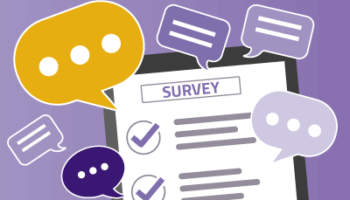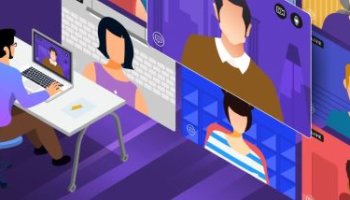NeuroLifeNow app reveals mental health impacts of the COVID-19 pandemic
20/04/2021
NeuroLifeNow is a new app that supports people with neurological conditions to share their recent experiences of care via a monthly questionnaire. It provides an invaluable source of up to the minute data of how people with neurological conditions are faring. The app is a joint initiative between the Brain and Spine Foundation and the Neurological Alliance.
Mental health impacts clear
Recent data published on the NeuroLifeNow platform shows that the COVID-19 pandemic is having a huge impact on the mental health of the neurological community, with well over half (56%) of respondents saying they felt anxious and/or hopeless, and 1 in 2 respondents saying they felt that their mental health needs were not being met at all or to a small extent.
While extremely concerning, these high figures may be reflective of a wider mental health crisis that is being seen across the UK, due to the huge social and economic impacts of the both the pandemic and accompanying national lockdowns. But for the neurological patient population there can be knock on impacts. These can include symptom flare ups, and people’s ability to self-manage their neurological condition reducing.
Cancellations and delays to care
Evidence from the NeuroLifeNow community also highlights the devastating impact cancellations can have. Those who reported having had appointments cancelled were also more likely to report their mental health needs not being met at all, were more likely to have had a visit to A&E in the past month, and were one and a half times more likely to report feeling anxious and/or hopeless.
In general, where people did have medical appointments – whether with a GP, neurologist, nurse physiotherapist or other – found them to be helpful. So ensuring people are able to have health appointments in spite of the heavy toll the pandemic has had on the NHS and its workforce is incredibly important.
Making the case for a neurology recovery plan
The Neurological Alliance has been able to use the NeuroLifeNow data to help push for better services. For example, in March, we attended a constructive meeting with Minister for Health Edward Argar MP. What we’ve learned from the NeuroLifeNow community is helping us make the case for neurology to be prioritised in plans for NHS recovery.
Similarly, the experiences reported via the NeuroLifeNow app are being shared with the NHS England and NHS Improvement outpatient and neuroscience transformation teams. These teams are looking to drive up standards of care, as well as reduce unwarranted variation in both access and funding. The teams have both indicated the importance and value of the experiences shared via the platform.
Next steps for the NeuroLifeNow app
Since its launch in January more than 640 experiences have been shared via the NeuroLifeNow app, and over 750 people affected by neurological conditions have now signed up. The end of March marks the end of the pilot phase for the app. We are therefore reviewing the feedback received about both the app and the data from it, and are pulling together plans to improve the platform in a variety of ways. This includes improving the usability of the app itself.
We plan to renew our efforts to diversify and grow the NeuroLifeNow community. Very little evidence exists about how a range of sociodemographic factors, including sexuality, gender (including gender reassignment), race and ethnicity and citizenship status may impact people with neurological conditions access or experience of care. This has to change. The Neurological Alliance is taking steps to understand specific gaps in our knowledge base. This will be used to actively shape the future approach of NeuroLifeNow.
Commenting, Georgina Carr, Chief Executive of the Neurological Alliance, said “We’ve been really pleased to work with the Brain and Spine Foundation on the NeuroLifeNow app. The opportunity it gives to people with neurological conditions to get their voices heard is so important, and gives us the impetus to push for better for them. I’m looking forward to understanding the community we serve even better as the NeuroLifeNow community continues to grow and diversify.”





